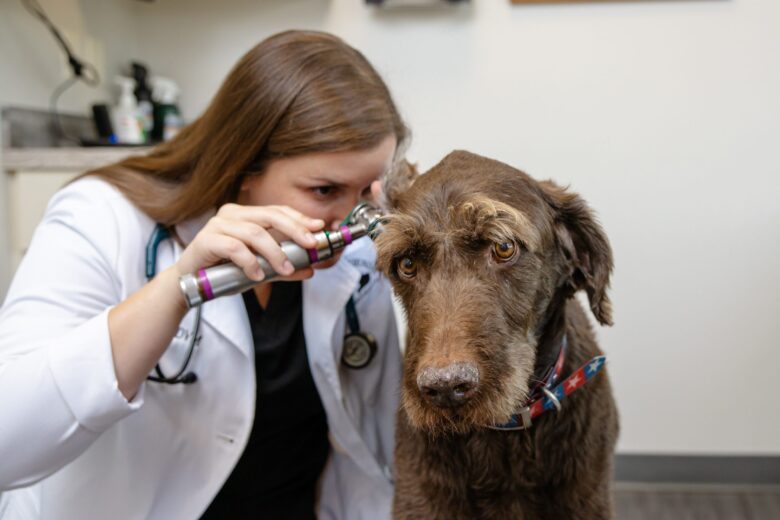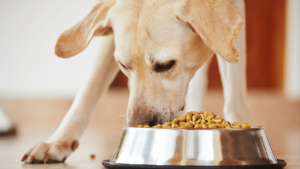To keep your pet healthy, it is important to take your pet to the vet regularly for checkups. Regular visits to the vet can help keep your pet healthy and happy in the long term.
Health problems can be detected and diagnosed early
Regular doctor visits are important to detect and diagnose health problems early. Many conditions can be better controlled or treated if caught earlier, meaning the pet will do better. During the exam, your veterinarian may perform several tests, such as blood tests, stool tests, and physical examinations, to look for signs of disease. For example, early detection of diabetes, kidney disease, or thyroid problems can make treating these conditions easier and improve your pet’s quality of life.
Get vaccinated and get preventive care
Vaccinations are an important part of preventive care and are usually given during regular visits to the vet. They can prevent dogs from contracting many infectious diseases, some of which can be fatal. Your veterinarian can tailor a vaccine plan for your pet based on your pet’s age, health, lifestyle, and risk factors. Moreover, prevention involves more than just vaccinations. These include getting rid of fleas, ticks, and worms, caring for your teeth, and getting tips on how to prevent common health problems. Regular inspections ensure that the security measures you take are always up-to-date and effective.
Take care of your teeth
Dental health is an important part of your pet’s overall health. Your vet can check your pet’s teeth and gums during regular checkups to see if there are any signs of dental disease. This is common in pets and can lead to more serious health problems if left unchecked. Getting your teeth cleaned by a dentist and following home care instructions can help prevent problems such as tartar buildup, gum disease, and tooth loss.
Helps with nutrition and weight management
Another important part of a regular doctor’s visit is nutritional advice. What your pet should eat depends on his age, health, and activity level. Your vet can advise you on which diet is best for your pet’s health and what he or she should eat. It is also important to keep an eye on your pet’s weight, as excess weight can lead to serious health problems such as joint pain, diabetes, and heart problems. Regular checkups allow you to monitor your pet’s weight and recommend changes to their diet and exercise habits if necessary.
Behavioral evaluation
Changes in your pet’s behavior can be a sign of health problems or stress in the environment. If you regularly take your hat to the vet, you can talk about any behavioral changes, such as aggression, nervousness, or fatigue. Your veterinarian can help you determine if these behaviors are signs of a deeper health problem or if the animal needs behavioral therapy or changes in its environment.
Care for older pets
Older pets have special care needs that require frequent checkups. Older pets can develop health problems that make their lives less enjoyable. A vet can regularly monitor an older cat’s health, treat long-term illnesses, and provide advice on how to manage pain, improve mobility, and other problems that arise as they age.
Conclusion
You cannot express how important regular visits to the vet are for your pet’s health. These exams are an important part of preventive care because they help detect diseases early, keep teeth healthy, provide nutritional advice, help pets manage their weight, observe their behavior, and provide special care for older pets. Pet owners can ensure their animals live better, happier, and longer lives by visiting their veterinarian regularly.
FAQs
1. How often should I take my hat to the vet?
How often your pet needs to visit the vet depends on his age, health, and any specific problems you have. Healthy adult pets should be examined annually. Younger pets, older pets, or sick pets may need more frequent visits.
2. What types of things do you typically find in veterinary practices?
A visit to the vet usually includes a physical exam, vaccinations (if necessary), parasite control, an evaluation of your pet’s teeth, a discussion about diet and behavior, and any diagnostic tests or treatments needed based on the pet’s health. your pet.
3. Will it cost a lot to go to the vet?
The cost of a vet visit can vary depending on the services provided and any tests or treatments required. But preventative care and early detection through regular checkups can often save people from paying more for more expensive treatments for an already advanced disease.
4. My pet looks healthy. Do they still need to go to the vet twice a year?
Yes, even pets that appear to be in good health should visit their veterinarian regularly for preventive care, early detection of potential health problems, and a health plan specifically tailored to their needs.
5. Does my pet get stressed when we go to the vet?
Some pets may be nervous when they go to the vet, but the staff and veterinarians are trained to keep pets calm and comfortable. Some things that can help reduce stress include gentle handling, a relaxing environment, and positive reinforcement.
6. What should I do if my pet doesn’t like going to the vet?
If your pet is nervous about going to the vet, talk to your vet about ways to make the visit more comfortable. This may mean using desensitization or sedatives or scheduling shorter visits more often.
7. What should I do to prepare my pet for a visit to the vet?
Make a list of questions or concerns and make sure your pet is comfortable in a carrier or on a leash during the trip. Make sure you have your pet’s medical documentation or information about his or her health history available before the vet visit.



